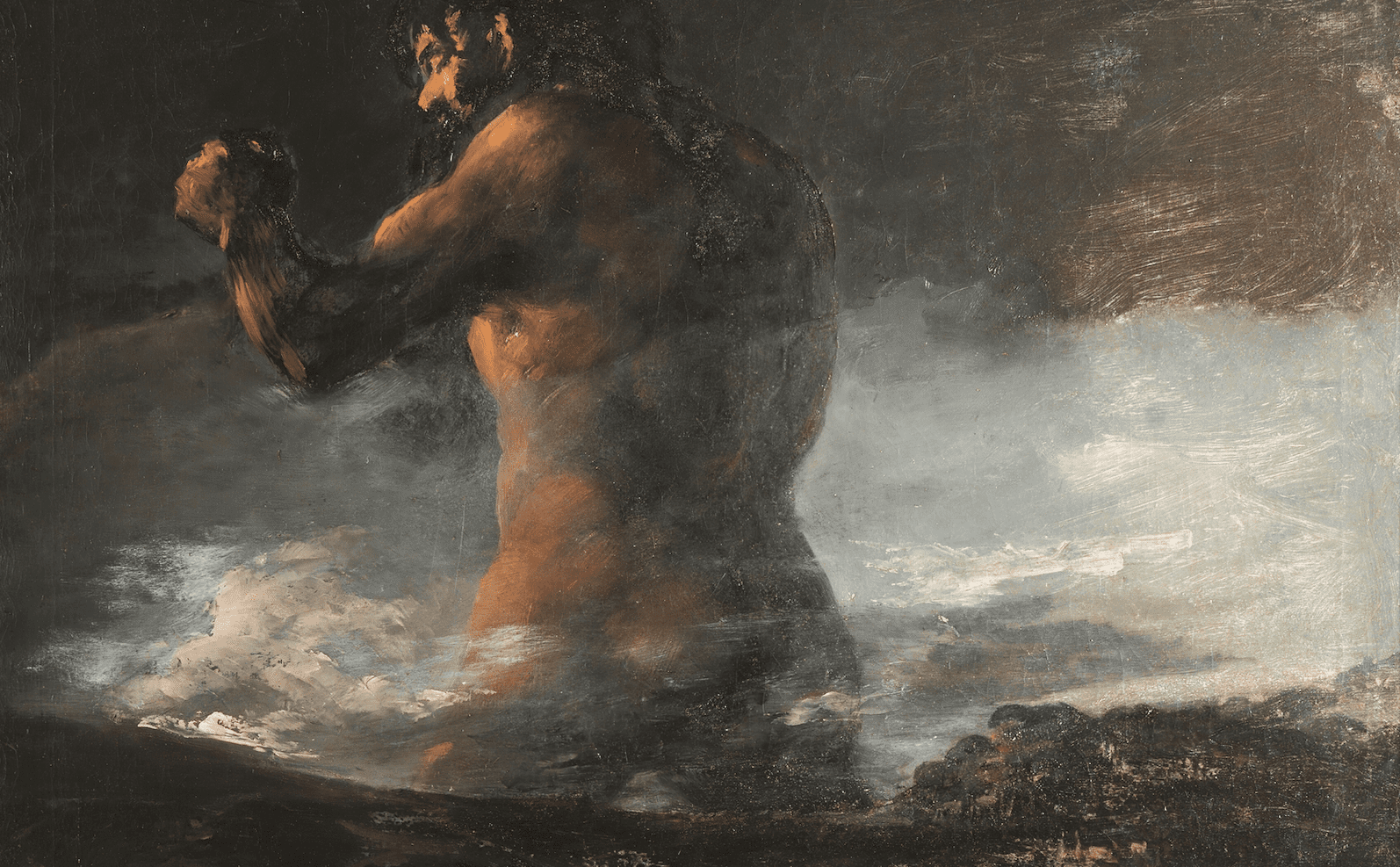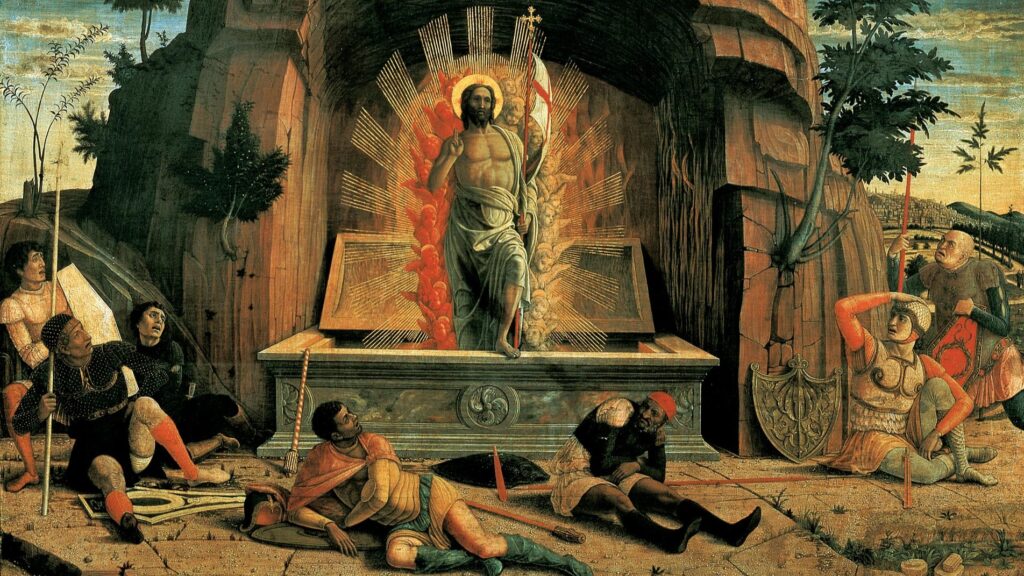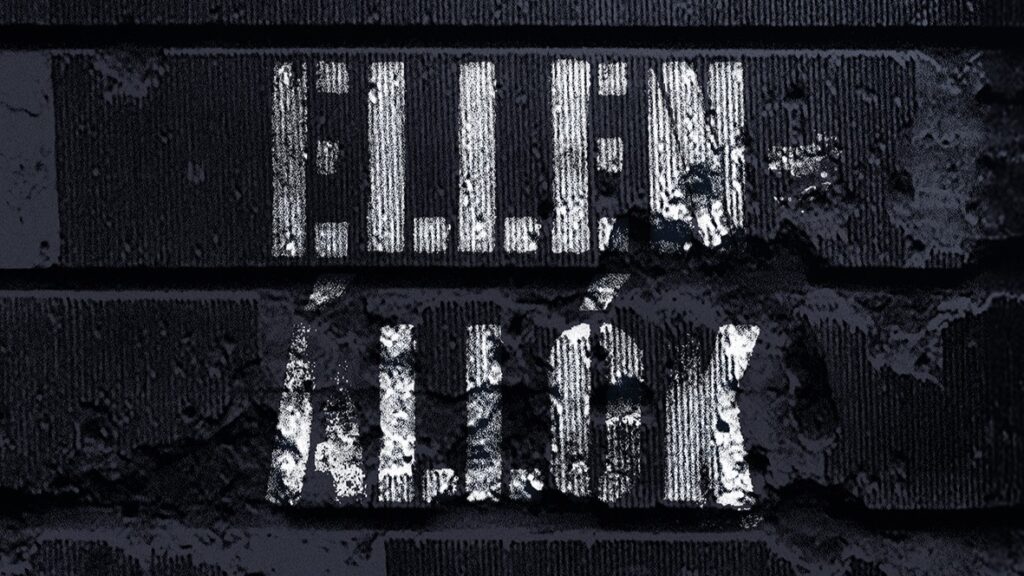Humans cannot live alone, or in couples. The most primitive form of life requires a number of people gathered in a particular place that is their own, surrounded by a group of those they depend on for their life. We call this a community, and it would appear to be a group of people who know one another with a deep intimacy. But communities grow, and as Aristotle put it, the polis (the Greek word for community) must be no larger than this: any person you might meet would know at least one person in common with you. In such a community, there is a natural bond. The community belongs to its inhabitants, and its future is their responsibility, not because that is moral, but because it is necessary. The community must be cared for and protected. Discord can doom the community, as the community requires a degree of harmony to survive. There exist communities that are a matter of indifference to their inhabitants, or whose inhabitants hold one another in contempt.
Such cities cannot survive, because their place and wealth will inevitably be coveted by other cities which, seeing this discord, will see also the opportunity to ease the lives of their own citizens. It is therefore in our nature to love those things that we are born to. It is also a necessity. The two are linked, since the necessary and the things we were born to are both foundations of humanity. Your mother is necessary to you. You cannot learn to be without her, and from that necessity comes love.
Ancient cities were necessarily small, as the transport and storage needed to sustain them had to be sourced from elsewhere, and that limited their size. However, as transportation and agriculture advanced and the first phase of industrialism emerged, the city (or smaller community) was transcended by larger entities, the nation states that replaced city-states as the foundational structure of community.
What bound the nation state together was history and values
The nation state created a very odd community. The city state was built around the ability to know other citizens. The nation state was far too large for that. Instead, what bound the nation state together was history and values. The nation state linked people together with tales of a shared past, principles of justice and behaviour, and the images that emerged from these as abstract principles of commonality. The flag became a fundamental bond, the national anthem a tale of triumph and resistance in sorrow.
The love of one’s own is defined in modernity not through individuals, or even kings. It is defined by a shared history, memories of triumph and sorrow, heroes and villains, and the symbols of the state. This makes it different from the city state or village. It shifts the bond from people to symbols and memories. That bond is a tale told by parents, who insist that their children learn of the past, and remember the greatness and suffering that was there, and the triumph that delivered them into a more generous existence. Children are taught of the past as a debt to be repaid by reverence and achievement. It is a debt that flows through mother and father.
The love of a mother is the most natural of loves. It requires no effort. The love of a father is more distant. Mothers provide unquestioning love. Fathers may provide that but must also provide a sense of duty. The roles are complex but the parents both cherish their children and teach them what they owe to the past, whether distant and abstract or within living memory. The parents’ lives are saturated with symbols and pasts. It is the framework from which they emerged, and they cannot fail to remember their own past and the flags and songs it cherished. They come to love their nation by a far more circuitous route than Aristotle imagined. The past weighs heavily on us, and parents deliver its essence to their children. With that the children come to know their own, and from the way it is taught, love of parents becomes love of nation.
This does not always take place. Parents may not celebrate their nation, or cannot articulate it. It is a vastly imperfect process. But a nation which cannot in general succeed in telling the tales of the past, and of the debts that are owed, cannot long endure. Side by side with the commercial republic must be the republic of the past. Money does not demand sacrifice. The nation only exists because of sacrifice. Love of one’s own is the most natural of loves and that love is the foundation of war.
Wars originate in fear. We fear our neighbour and their neighbours because they may covet the things we protect. Because of who we are and what we were. But nations fear us for another reason: we may covet what they possess. They do not love us, nor we them. There is a fear of war and its terrors, but there is also the fear of weakness. And the stronger each becomes the more they are feared. Thomas Hobbes wrote of war as the natural relationship between humans, which is empirically true, if somewhat overstated.
The fear of the other feeds love of one’s own. If another nation threatens your nation, then it is threatening something you love, and that love compels you to defend what you love. Soldiers sometimes crave adventure and sometimes are thoughtless and reckless. Most soldiers understand the danger that war poses to them if they choose to fight in it. But who could resist the need to protect the things they love and that are fundamental to their lives? Or, more precisely, who could bear the shame of not protecting their love? From Alexander the Great to Volodymyr Zelensky it has been the invocation of love of one’s own that has caused soldiers to put themselves in harm’s way. Whether through natural honour or the shame of not having that honour, the soldier wages war. Hatred for the enemy may be a factor, but the heart of the adventure of war is the love of the flag and that nation that is natural to humans.
There can be no community, small or large, that does not teach its history and symbols to those who are born and grow up in it. It may manifest itself as the founders’ virtues, or as a flag symbolizing the nation. And it is from this past that soldiers are drawn and wars are fought. There is a saying that the greatest virtue is to put yourself between your home and war’s desolation.
I have been discussing love, something that is between humans. It is also necessary to discuss place. Human life is not an abstraction and neither is war. War therefore has a location on the earth. That location is complex. In nations that are next to each other, the location where wars take place are determined by simple things such as the geography of mountains and rivers, and whether a combatant possesses the horses or the tanks needed to move in those places, for in war, movement is the key element along with surprise. In a circumstance where two nations waging war are on the opposite sides of the world, the considerations of mountains and rivers might come into play later, but the war begins with missiles and satellites, the former to destroy and the latter to see. Distance does not change the fundamental nature of war. Soldiers kill and soldiers live and people who are not soldiers die as well. This is not new. What is new is the terrain of war.
The terrain of war depends on the weapons used. In antiquity the bow and spear meant that war would be fought at close quarters and civilians could evade it. As time went on the distance between warriors increased until civilians could no longer escape. Finally in our time, war is potentially global and the result is that civilians are likely to constitute the great majority of casualties, given distance and type of explosives.
Love of one’s own meant protecting those who stepped aside. There was therefore a logic to it all
Love of one’s own was a principle built around war at relatively close quarters, allowing non-combatants to step aside, and focusing soldiers by necessity on each other. Love of one’s own meant protecting those who stepped aside. There was therefore a logic to it all. The nation (and citizens) were what was to be protected; the war was between the soldiers of two nations acting out of similar motives. The soldiers fought with everything they had and the civilians could remain far from the battlefield.
Today the range of war leaves civilians no safe haven. This affects war in a fundamental sense. War is fought out of love of one’s own nation and fellow citizens. But war has evolved to a point where the logic breaks down, inasmuch as those principles and people whom you are fighting to defend are likely to be war’s victim and perhaps the first victim. Natural barriers no longer simply define the battlefield. The battlefield is global and the weapons are indifferent to barriers. The survival of the nation may demand the logic of the ancients, whereby one either kills in order to preserve the symbols of the nation state, or one allows the enemy to kill those one loves. Love of mother and love of nation used to be one. In the contemporary model of warfare, having abolished the significance of place, the unity of the two loves has been torn apart.
Here I am not talking about nuclear missiles alone. I am also talking about aerial bombardment and long range missiles. All of these transcend the barriers of place and all strike the enemy regardless of love. The end is that the love of nation is destroyed. It is difficult to emerge from war with a sense of triumph and of having done one’s duty. It is even harder after seeing the harm that was done to the enemy and the enemy seeing what was done to their nation, to see war as an act of love.
We have, in a sense, returned to antiquity. When an ancient city was conquered, the city was sold and residents enslaved. There was nothing left. Love of one’s own compelled defence. Today, extended warfare allows the destruction of the city and the annihilation of much of the population. In some cases, as with Soviets, the conquered were taken as slaves. In antiquity defence was possible. The contemporary rise of extended warfare is able to annihilate regions without any possible means of defence.
Love of one’s own was the foundation of war. It motivated the soldier to do his duty. The concept took many turns but it endured. However if war, from precision guided missiles to nuclear weapons hold open only the certain annihilation of what a soldier loves, then the mutual destruction of the other side carries with it no love, pride, or honour. It does not protect those you love.
It is inconceivable that war will be abolished. It is one of the eternal realities of humanity and even the impossibility of protecting one’s own in victory will not stop it. A technical solution would be anti-attack systems, such as anti-missile systems. But one failure of that destroys what is left. Its abolition is impossible. Love of one’s own was the foundation of war. But now that love is confused by the most surprising of things. Not God, nor wisdom, but technology. Still there is one key hint of redemption. Except for the two bombs dropped on Japan in the Second World War, nuclear weapons have never been used in warfare, despite the fact that nuclear powers have lost wars. Love of one’s own seems to have reversed or limited war in some profoundly important way.
Love used to define war, and the love that avoided nuclear war when logic would have held it inevitable seems to have begun to limit the wars that would kill what you love.








